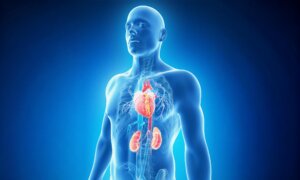Influenza can range from being a light illness to a serious disease, and when complicated by acute myocarditis, it could be life-threatening.
In NTDTV’s “Health 1+1“ program, Zheng Yuanyu, a physician at Taiwan Shangwen Clinic, explained the occurrence, risk factors, and prevention of acute myocarditis based on two recent fulminant myocarditis cases after influenza incidence. Fulminant myocarditis is a serious and quickly advancing type of myocarditis with sudden and severe onset of acute heart failure.
The average American adult gets a cold two or three times a year, even more so for children. Especially after the COVID-19 pandemic, many people do not seem to take having the flu as seriously as before.
However, two recent cases of fulminant myocarditis in Taiwan caused by influenza have again made influenza complicated by myocarditis a topic of much attention.
One case involved a 55-year-old male patient who was diabetic and overweight. One week after recovering from the flu, he suddenly felt chest tightness and heart palpitations. He fainted at his workplace and was rushed to the emergency room for immediate treatment. He was later diagnosed with myocarditis.
The second case involved a 12-year-old girl who suddenly developed similar symptoms of chest tightness and irregular heartbeat one to two weeks after having a cold. She was in a state of shock on her way to the hospital and was later diagnosed with type A influenza complicated by fulminant myocarditis. Her doctor applied extracorporeal membrane oxygenation and then implanted a heart pump. After two months of treatment and rehabilitation, she was discharged from the hospital.
In May 2024, a 41-year-old woman in Pittsburgh sought medical treatment for cold symptoms and suffered a sudden cardiac arrest due to myocarditis. Fortunately, she was treated in time and was out of danger a few days later. It took her half a year to make a full recovery.
Easily Overlooked or Misdiagnosed
Fulminant myocarditis has the following
characteristics:
Easily Misdiagnosed. The initial symptoms may be similar to the flu, so it could be ignored, delayed, or misdiagnosed.
Rapid Onset. Symptoms worsen rapidly over a short period of time, possibly leading to death within hours or days.
Severe Symptoms. Severe heart failure and arrhythmias occur early on.
High Mortality Rate. If not treated promptly, the mortality rate is extremely high.
Causes of Myocarditis Caused by Colds
The common cold is an upper respiratory tract infection usually caused by a virus (more than 200 species are currently identified). The chance of myocarditis occurrence is quite rare.
Myocarditis is inflammation of the heart muscle layer, which affects the heart’s ability to pump blood, leading to irregular heartbeats. Most myocarditis cases are caused by infection, primarily viral, including influenza, COVID-19, herpes, coronavirus, and adenovirus, among others. There could be other causes, too, including medications, bacterial infections, and autoimmune diseases such as rheumatoid arthritis or systemic lupus erythematosus.
Myocarditis is not caused by the virus directly damaging the heart but by the body’s immune system overreacting to the viral infection, triggering a “cytokine storm,” which can lead to myocardial damage and severe arrhythmia.
Be Wary of Early Symptoms
The initial symptoms of myocarditis may be similar to those of ordinary influenza, such as fever, cough, etc. However, warning signs, such as chest pain, difficulty breathing, palpitations, and irregular heartbeat, may appear later.
Zheng said that if those symptoms suddenly appear during or after the flu, especially if the chest pain lasts more than 15 minutes, you should seek medical treatment as soon as possible.
He said that in the early studies on fulminant myocarditis, most of the data were obtained from autopsies because it was often too late by the time the patients went to the hospital.
COVID-19 brought more awareness to medical staff and the general public about the disease (especially viral myocarditis). Patients now receive treatment in a timelier manner, and the mortality rate has declined from 50 percent to 5 percent.
Zheng added that maintaining normal immunity is the key. This could be realized by maintaining good living habits, such as eating a balanced diet, quitting smoking, avoiding alcohol, and engaging in moderate exercise.
High Risk Groups
- People with chronic diseases, such as diabetes or high blood pressure, are more vulnerable to post-infectious complications.
- People with autoimmune diseases, such as lupus or rheumatism.
- People undergoing cancer treatment. Some drugs, such as chemotherapy drugs, can increase the risk of myocarditis.
- People infected with CID-19 or vaccinated with the mRNA vaccine. A review published in JAMA showed that the number of myocarditis/pericarditis cases related to COVID-19 has increased by at least 15 times compared to pre-pandemic, regardless of whether you have the virus or are vaccinated. This is especially the case for those who have received their second dose.
Studies show that COVID-19 itself is more likely to cause myocarditis in most people than the vaccine. A University of California-led
study also found that COVID-19 infection is more likely to cause cardiovascular complications than respiratory viral infections such as influenza and respiratory syncytial virus.
Zheng said that although acute myocarditis is uncommon, once it occurs, it may be life-threatening. We are currently in a susceptible period for influenza and various viruses, and everyone should remain alert to certain acute complications and seek medical treatment as soon as possible whenever there are any signs of it.


















